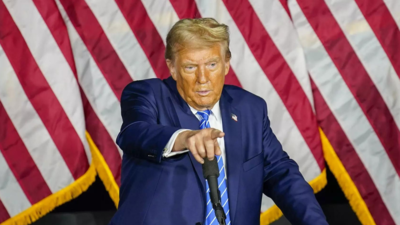
A federal judge in Washington DC has unsealed a staggering 165-page document from Special Counsel Jack Smith offering insights into the high-stakes case against former President Donald Trump for alleged attempts to subvert the 2020 election results. This filing was made public just 34 days before Americans cast their ballots.
With many Americans gearing up to decide whether to reinstate Trump in the White House, the contents of the filing provides a comprehensive outline of the prosecution’s case against Trump, detailing his actions and strategies aimed at overturning the election results—actions that prosecutors argue fall outside the protections of presidential immunity.
The document alleges that Trump’s efforts to pressure Vice President Mike Pence not to certify the election were carried out in an unofficial manner, exempting them from the cloak of immunity typically given to a sitting president.
The Associated Press reported that the filing contends that Trump had laid the groundwork for rejecting the election results even before the ballots were cast, telling advisers that in the event he held an early lead he would “declare victory before the ballots were counted and any winner was projected.”
Throughout the filing, prosecutors depict Trump as a leader in a state of “increasing desperation”, suggesting he resorted to deceit and manipulation to influence every stage of the electoral process.
The document details a conversation that highlights Trump’s dismissive attitude towards the severity of the events unfolding on January 6, 2021. When informed that Pence had been evacuated from the Capitol due to the violent insurrection incited by Trump supporters, he reportedly replied, “So what?” Furthermore, when an aide warned him that a lawyer was unable to substantiate the false claims being made, Trump said, “The details don’t matter.”
The filing also showcases Trump’s calculated use of social media to disseminate misinformation about the election. Of the more than 1,200 tweets he sent during the weeks leading up to the insurrection, the majority revolved around unfounded claims of election fraud.
Trump also promoted false assertions that Pence could reject electoral votes, despite being informed that the vice president lacked such authority. This “steady stream of disinformation,” prosecutors argue, culminated in Trump’s incendiary speech at the Ellipse on January 6, where he urged his supporters to march to the Capitol, setting the stage for the violent breach that followed.
The filing references “forensic evidence” from Trump’s phone, aiming to provide further insights into his actions post-Capitol attack.
In response, Trump and his campaign continue to vehemently deny any wrongdoing. A Trump campaign spokesperson labeled the brief as “falsehood-ridden” and unconstitutional, framing Smith’s investigation as a politically motivated attack. Trump himself took to his Truth Social platform, asserting that the case against him would ultimately end in his “complete victory.”





